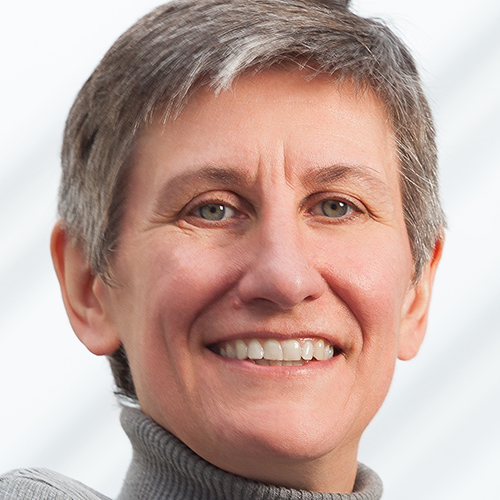One of the issues under scrutiny earlier last year in Quebec was whether individuals whose sole underlying medical condition is a mental disorder should be permitted to access medical assistance in dying (MAiD). In December, the Commission spéciale sur l’évolution de la loi concernant les soins fin de vie, convened by the Quebec National Assembly, published its report after seven months of deliberations. The report contains future directions for the practice of MAiD in Quebec.
The commission “recommends not expanding access to medical assistance in dying for people whose only medical problem is a mental disorder; to this end, Article 26 of the Act Respecting End-of-Life Care be amended.” Unfortunately, this recommendation is out of step with the evolving thinking on this issue found in jurisprudence, federal legislation and the recommendations of Quebec’s regulatory authorities and professional associations. It is also based on misleading statements and logical inconsistencies.
Justice Christine Baudouin, now of the Quebec Court of Appeal, carefully considered this very issue and concluded in Truchon v. Canada (2019) that mental illness was not excluded from the reach of the Supreme Court of Canada decision in Carter v. Canada. In fact, she held that the determination of a person’s vulnerability ought to be based on an individualized, case-by-case assessment and expressly rejected blanket exclusions on the basis of membership in a group, such as “vulnerable persons.”
In its recent revision of Canada’s MAiD law, the federal government followed suit and included access for people with mental health issues. While it introduced a temporary two-year exclusion, this delay will allow for the development of assessment standards and, if needed, additional safeguards. The exclusion will be automatically repealed in March 2023.
Finally, Quebec organizations that represent and regulate the practice of physicians, nurses, psychologists and social workers all agree that people with mental disorders as their sole underlying medical condition ought not to be subject to a blanket exclusion from access to assisted dying. The two major associations of psychiatrists in Quebec and Canada came to the same conclusion.
Several times in its report, the commission misleadingly refers to “extending” access to medical assistance in dying to those who suffer from mental disorders as their sole underlying medical condition. Let’s be clear: neither the Quebec (2015) nor the Canadian (2016) laws ever excluded medical assistance in dying for those with mental disorders. The Quebec law required someone to be “at the end of life” while the federal law required that a person’s “natural death has become reasonably foreseeable.” A person with a mental disorder as the sole medical condition could, in limited circumstances, meet those requirements and, in fact, there have been a small number of such cases.
In addition, the commission’s report asserts that “mental disorders have specific characteristics that distinguish them from other illnesses such as cancer or lung and heart disease.” However, the commission does not identify any such specific characteristics.
Two weights, two measures
Logical inconsistencies emerge when the commission raises clinical questions such as how to establish incurability and irreversibility of decline of mental disorders. These eligibility criteria can be difficult to assess in certain situations, but this is not unique to people with mental disorders as their sole underlying medical condition. Outside of the end-of-life context, establishing the incurability of a condition or the irreversibility of decline can also be difficult for some physical problems such as chronic pain.
If people with mental disorders can access MAiD, the commission worries whether suicidality can be distinguished from a request for MAiD in such cases. However, this, too, is not exclusive to people whose mental disorders are their sole underlying condition. People with certain types of cancer (including lung and pancreatic cancer) are at higher risk of committing suicide than the general population in the first six to 12 months following diagnosis. Yet, this group’s increased risk of suicidality does not lead to exclusion. Instead, the request is assessed on a case-by-case basis, taking into consideration the totality of the individual’s circumstances.
The commission’s report goes on to articulate the unintended social consequences it associates with access to MAiD by people with mental disorders, suggesting that people with mental disorders may be vulnerable to pressure. The commission also says MAiD for people with mental disorders may lead to a slippery slope in which people request assistance because of socioeconomic disadvantage: “[a]ny possible extension of this type of care must take into account… society’s responsibility to protect persons who are vulnerable.” (p.48)
However, the commission applies this logic only to people with mental disorders as their sole underlying medical condition rather than to all people who may be in situations of vulnerability. The report states, “it is possible for persons with a mental disorder to obtain medical aid in dying in certain circumstances. When they have a serious and incurable illness other than their mental disorder, these people can obtain this care.” The report uses the example of an individual suffering from schizophrenia and incurable cancer who “could obtain medical aid in dying if he or she is deemed capable and meets the other eligibility criteria.”
To expose the inconsistencies in this position, let us take an example of a person with schizophrenia who, according to the commission, is vulnerable to pressure to request MAiD by virtue of this diagnosis and therefore requires protection – meaning he should be excluded.
Medical assistance in dying bill an important step forward for Canadians with dementia
We need to understand that psychological suffering can be unbearable, too
But now let us imagine that the day after being denied access, this same person is diagnosed with a physical disease considered to be serious and incurable. Suddenly, in the eyes of the commission, the person no longer requires protection. Instead, any vulnerabilities can be addressed through an individualized eligibility assessment and procedural safeguards. It’s still the same person, experiencing the same pressure and the same vulnerability. Nothing has changed that would justify exclusion in one case and potential access in the other.
Better protections rather than exclusions
Instead of turning to blanket, overly broad exclusions, the commission could have recommended protective measures that address the actual problems it identifies. Several groups and organizations have recommended safeguards and clinical practices to address these concerns.
Furthermore, it could have encouraged regulators to develop standards and professional organizations to produce guidelines. These would shape the implementation of the safeguards in the Criminal Code that apply to individuals whose natural deaths have not yet become reasonably foreseeable – including most individuals with a mental disorder as their sole underlying medical condition.
Instead, the recommendation ignores the vulnerabilities of some people, such as those experiencing serious socioeconomic disadvantage who have physical disease. At the same time, it interferes in the lives of capable adults with mental disorders who may have had decades of high-quality but ineffective treatment and assistance.
The commission’s recommendation on people with a mental disorder was made without providing a logically coherent justification that would distinguish all such people – as a group – from every other member of society. If the Quebec National Assembly wishes to adopt the recommendation of the commission, it will need to come up with a justification for doing so. The commission failed to give it one.















